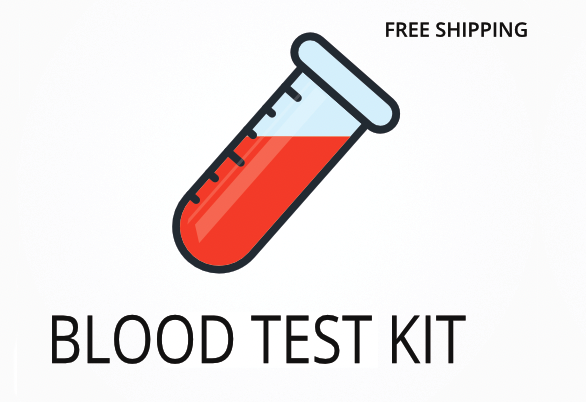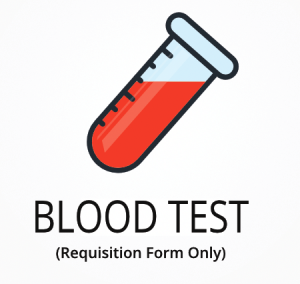Ordering the CardioMetabolic Profile | ZRT Lab
The CardioMetabolic Profile from ZRT Lab helps measure key markers linked to blood sugar, cholesterol, and inflammation, which are all connected to heart and metabolic conditions. This test can show early signs of insulin resistance, high triglycerides, and other changes that may lead to diabetes or heart disease. Interestingly, the test also checks high-sensitivity C-reactive protein, a marker that can reveal hidden inflammation in the body before symptoms appear.
Ordering this test can help you:
- Track fasting insulin and glucose to spot early insulin resistance
- Measure cholesterol types (HDL, LDL, VLDL) for a detailed lipid profile
- Check hemoglobin A1c for long-term blood sugar control
- Monitor triglycerides, which are linked to heart and metabolic risk
- Detect inflammation with high-sensitivity C-reactive protein (hsCRP)
Who Should Consider a Heart and Metabolic Risk Panel
People who want to keep track of their heart and metabolic health, especially those with a family history of diabetes or heart disease, may benefit from this test. For example, someone who has noticed their energy dropping and has gained weight over the past year might want to check if changes in blood sugar or cholesterol are playing a role.
Ordering this test may also be helpful if you:
- Have a parent or sibling with high blood pressure or heart disease
- Are overweight and want to know your risk for metabolic syndrome
- Exercise often but still feel tired or have trouble losing weight
- Have been told your blood sugar is “borderline” or “pre-diabetic”
- Are curious if chronic stress is affecting your inflammation or heart risk
This test can help you spot changes in blood sugar, cholesterol, and inflammation before they become bigger problems, making it easier to take action early. Waiting to order this test could mean missing the chance to catch and address these changes before they lead to more serious issues.
Preparing for a Metabolic and Lipid Panel
You will need to fast for 12 hours before collecting your blood sample for this test. Always follow any instructions your doctor or healthcare provider gives you to make sure your results are as useful as possible.
Labs Included When Ordering Your CardioMetabolic Profile | ZRT Lab
| Test Name | Reference Range | What It Measures | Low and High Levels of the Marker |
|---|---|---|---|
| Insulin, Fasting | 2.6 – 24.9 | Shows how much insulin your body makes when you have not eaten. High fasting insulin can mean your body is not using insulin well, which can lead to diabetes. |
High levels mean your body may be resistant to insulin, which can raise your risk for diabetes and heart disease.
Low levels mean your pancreas may not be making enough insulin, which can cause high blood sugar. |
| C-Reactive Protein (hsCRP) | <1.0 | Checks for inflammation in your body, even if you do not feel sick. High hsCRP can mean a higher risk for heart problems or hidden inflammation. |
High levels mean there may be inflammation in your body, which can raise your risk for heart attack or stroke.
Low levels mean there is little or no inflammation, which is a good sign for your heart. |
| Hemoglobin A1c (HbA1c) | 4.8 – 5.6 | Shows your average blood sugar over the past 2-3 months. This helps spot early signs of diabetes or poor blood sugar control. |
High levels mean your blood sugar has been high for a while, which can lead to diabetes and other problems.
Low levels mean your blood sugar has been low, which can sometimes cause tiredness or dizziness. |
| Triglycerides | <150 | Measures the amount of fat in your blood. High triglycerides can raise your risk for heart disease and are often linked to high blood sugar. |
High levels mean you have more fat in your blood, which can increase your risk for heart attack or stroke.
Low levels mean your blood fat is low, which is usually good unless you are underweight or have other health issues. |
| Cholesterol (Total) | 125 – 200 | Shows the total amount of cholesterol in your blood. This includes both “good” and “bad” cholesterol and helps measure your risk for heart disease. |
High levels mean you may have a higher risk for heart disease or blocked arteries.
Low levels mean your cholesterol is low, which is usually good unless it is too low, which can affect hormone production. |
| HDL (High-Density Lipoprotein) | 40 – 60 | Known as “good” cholesterol, HDL helps remove extra cholesterol from your blood. Higher HDL can lower your risk for heart disease. |
High levels mean you have more “good” cholesterol, which helps protect your heart.
Low levels mean you have less “good” cholesterol, which can raise your risk for heart problems. |
| LDL (Low-Density Lipoprotein) | <100 | Known as “bad” cholesterol, LDL can build up in your arteries and raise your risk for heart attack or stroke. |
High levels mean you have more “bad” cholesterol, which can block arteries and cause heart disease.
Low levels mean you have less “bad” cholesterol, which is better for your heart. |
| VLDL (Very Low-Density Lipoprotein) | 5 – 40 | VLDL carries triglycerides in your blood. High VLDL can mean more fat in your blood, which is linked to heart and metabolic problems. |
High levels mean you have more fat being carried in your blood, which can raise your risk for heart disease.
Low levels mean your blood carries less fat, which is usually good unless you are underweight. |
Reference ranges may change slightly as labs update their guidelines, so always check your report for the most current values.
CardioMetabolic Profile FAQ
Is there CardioMetabolic Profile testing near me?
This is a home test kit that you can collect yourself, and you can check the draw location link at the top of the page for more details. If you have trouble getting to a lab or need to monitor your risk for diabetes or heart disease without delay, this makes testing more accessible and convenient.
How do I interpret the test results?
While your doctor should help you understand your results, we also offer a one-on-one test results review with our clinical team to help you make sense of your numbers and what they mean for you.
What is the cost of the test?
The price you see includes shipping the kit to you and back to the lab, but some locations may charge a draw fee. Ordering this test can help you find out if blood sugar or cholesterol changes are slowing your progress, so you can take steps to improve sooner.
How often should I retest?
Most people retest every 3 to 6 months to track changes in blood sugar, cholesterol, and inflammation, especially if they are making changes to their diet or exercise. Regular testing helps you see if your efforts are working and lets you adjust your plan as needed.
How accurate is the test?
This test uses advanced immunoassay and enzymatic methods for each marker, with a specificity of 98% and sensitivity of 97%. TrueHealthLabs.com partners with CLIA-certified and CAP-certified laboratories to uphold rigorous testing standards for dependable results.
Important Notes
- This test cannot be shipped to and collected in the state of New York.
Medical Review Board
Reviewed by Jeff Donohue M.D. from Body Logic and Brady Hurst DC, CCCN. Written by True Health Lab’s team of editorial health contributors.
Disclaimer: This information is for educational purposes only and not intended as medical advice. Consult your healthcare provider for personalized guidance.
Why Customers Trust True Health Labs - What People are saying
Also rated 4.6 out of 5 based on 3452 ShopperApproved reviews- See all TrueHealthLabs.com reviews.







